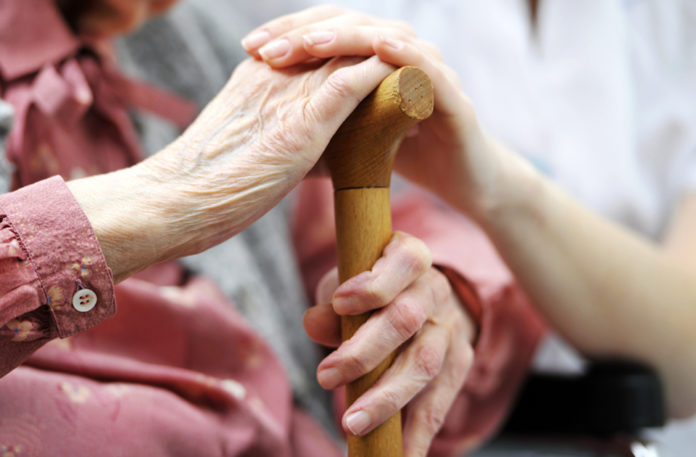Being Dutiful Towards Parents
Parents are a blessing from Allah, the Exalted, but their presence is often taken for granted and their rights, neglected especially when they grow old and become dependent on their children. Talking harshly and rudely to parents and showing discomfort on their requests have become a norm. Whereas Islam teaches obedience and kindness to parents, fulfilling their right, preserving their honour and warns against neglecting the rights of parents. Allah says:
| “ fear Allah through Whom you demand your mutual (rights), and (and do not cut of the relations of) the wombs (kinship) ”[1] |
Narrated Abu Hurayrah (radhi allahu anhu), Allah’s Messenger (sallallahu alaihi wa-sallam) said:
| “Allah created all the creatures and when He finished the task of His creation, Ar-Raham (the womb ties of relationship) said: ‘(O Allah) at this place I seek refuge with You from all those who sever me (i.e. sever the ties of relationship).’ Allah said: ‘Yes. Are you satisfied that I should hold with him who holds you and sever connection with him who severs you?’ It said: ‘I am satisfied.’ Allah said: ‘This is yours.'” Then Allah’s Messenger (sallallahu alaihi wa-sallam) said: “Recite the verse if you like, ‘Would you then, if you were given the authority, do mischief in the land, and sever your ties of kinship? Such are whom Allah has cursed…” [2] |
Imam Ahmad recorded from Abdullah Ibn Amr (radhi allahu anhu) that Allah’s Messenger (sallallahu alaihi wa-sallam) said:
| “The womb will be placed on the Day of Resurrection, curved like a spinning wheel, speaking with an eloquent fluent tongue, calling to severing whoever had severed it, and joining whoever had joined it.” [3] |
These Ahadeeth stress the importance of proper treatment with relatives for this is a special means of attaining the nearness and the Mercy of Allah. A conduct contrary to it – neglecting the rights of the relatives is a cause of displeasure and Wrath of Allah. Thus, upholding family ties is obligatory and more so when it is a relation of the womb. The Messenger of Allah (sallallahu alaihi wa-sallam) warned against bad behaviour towards parents, when he said:
| Three acts will render one’s deeds useless; associating others with Allah, Uquq towards parents and fleeing from the battle.” [4] |
Al-Hasan al-Basri said:
| “Birr towards parents entails obeying their orders, except when what they order in disobedience of Allah. In contrast, Uquq entails neglecting parents and withholding one’s kindness from them.” [5] |
Ibn Abbas (radhi allahu anhu) said:
| “Allah opens two doors (to Paradise) for every Muslim who is dutiful to his (or her) two Muslim parents, awaiting the reward with Allah Alone, and one door if he (or she) had one surviving parent (to who he or she is dutiful). Furthermore, if one makes one of his parents angry, then Allah will not be pleased with him until his parents forgive him.” He was asked: “Even if they were unjust to their child?” He said: “Even if they were unjust.” [6] |
He, who fulfils the duties of his parents, has thus chosen a path to Paradise and he who neglects his duties towards his parents is truly deprived from a great opportunity to enter Paradise because obeying and honouring one’s parents is a means of entering Paradise.
Abu Hurayrah narrated that the Prophet (sallallahu alaihi wa-salaam) said:
| “May he be disgraced! May he be disgraced! May he be disgraced?” It was said, “Who, O Messenger of Allah?” He said, “The person whose parents, one or both of them, reach old age during his lifetime but he does not enter Paradise (by rendering due services to them).” [7] |
Service of parents is essential at every stage of their life; whether they are young or old. But this Hadeeth mentions their old age for the reason that in that period of their life they stand in greater need have care and service. It is a very callous offense to leave them at the mercy of circumstances when they are old, senile and depend on others for their needs. To neglect them at that stage is a major sin.
Abu Bakrah Nufai Ibn al-Harith narrated, Allah’s Messenger (sallallahu alaihi wa-sallam) said:
| “Shall I not inform you of the biggest of the major sins?” Allah’s Messenger (sallallahu alaihi wa-sallam) asked this question thrice. We said: “Please, O Allah’s Messenger.’ He (sallallahu alaihi wa-sallam) said: “To join partners with Allah in worship and; to be undutiful to one’s parents.” ”[Agreed upon] |
One can certainly find sufficient time to take care of his parents, attend to their needs, respect them, talk to them, support them financially and emotionally, and rear his children to love them and be around them. The time spent with the parents is pleasant, listening to their stories, conversing to them about family affairs, asking for their advice, loving them and showing them affection and pleasure. How can this be considered difficult or burdensome, when the parents are the dearest person to one’s heart, the shelter that he resorts to when he is sad and depressed.
Islam does not command obedience only to the believing parents, but also encourages upholding the ties of kinship with disbelieving parents.
Narrated Asma’ bint Abi Bakr,
| “My mother came to visit me at the time of the Messenger of Allah (sallallahu alaihi wa-sallam) and she was a mushrikah (disbeliever). I consulted the Messenger of Allah (sallallahu alaihi wa-sallam) saying, ‘My mother has come to visit me for some purpose, should I uphold ties of kinship with my mother?’ He said, ‘Yes, uphold ties of kinship with your mother.'” [8] |
Such is because no child can pay back the hardships borne by his parents in raising him.
Also, Zurah Ibn Ibraheem said that a man came to Umar (radhi allahu anhu) and said to him:
| “I have an old mother who is unable to go to answer the call of nature, so I carry her on my back. I also help her perform ablution while turning my face away from her (out of respect). Have I fulfilled my duty towards her?” Umar (radhi allahu anhu) said: “No.” The man said: “Even though I carry her on my back and exert myself in her service.” Umar (radhi allahu anhu) said: “She used to do the same for you (when you were young) while hoping that you will live, as for you – you wait when she will go away (die).” [9] |
Respecting and obeying the parents is a way of showing gratitude to them.
Ibn Abbas (radhi allahu anhu) said:
| “There are three verses that are tied to three things, and they are inseparable.” He mentioned among them the verse, “ give thanks to Me and to your parents.” [10] |
And he commented:
| “Whoever thanked Allah, but did not appreciate his parents, then (his thanking Allah) would not be accepted from him. This is why the Prophet (sallallahu alaihi wa-sallam) said: ‘The Lord is pleased with the pleasing of the parents, and the Lord is angry with him who angers the parents.'” [11] |
The importance of honouring and serving one’s parents is also known from the verses of Surah Luqman, where Allah mentions the advice of Luqman to his son. He advices his son with kindness and good behaviour to the parents next to Tawheed (worshiping Allah alone), he said as Allah mentions in the Quran:
| “And (remember) when We took a covenant from the children of Israel, saying: ‘Worship none but Allah (Alone) and be dutiful and good to parents and to kindred, and to orphans and al-Masakin (the poor).” [12] |
When children dedicate sufficient time to the service of their parents, obey them and fulfil their duty towards them, especially the mother, they will earn Allah’s Pleasure and enter Paradise.
The Prophet (sallallahu alaihi wa-sallam) climbed up on the Minbar and then said:
| ‘Ameen, Ameen, Ameen.’ |
It was said:
| “O Messenger of Allah, why did you say Ameen?” |
He (sallallahu alaihi wa-sallam) said:
| “Jibreel came to me and said: ‘O Muhammad, he is doomed who hears you mention and does not say, Peace upon you.’ He said, ‘Say, Ameen.’ So I said Ameen. Then he said: ‘He is doomed who sees the month of Ramadan come and go, and he has not been forgiven.’ He said: ‘Say, Ameen.’ So, I said Ameen. Then he said: ‘He is doomed, who grows up and either his parents or one of them are still alive, and they do not cause him to enter Paradise.” He said: ‘Say, Ameen.” So I said Ameen.” [13] |
The Mother is More Deserving of Honor and Respect Than the Father
The mother carries the child for nine months in weakness upon weakness, bears the difficulties of pregnancy, gives birth, feeds the child and dedicates herself to his service, protecting, clothing, cleaning, etc. It is for this reason that the mother is more deserving of honour and respect than the father and more deserving of kindness, service and obedience as small compensation for her care and efforts as being three time what the father deserves.
Narrated Abu Hurayrah (radhi allahu anhu):
| “A man came to the Prophet (sallallahu alaihi wa-sallam) and said: ‘O Messenger of Allah, who among the people is most deserving of my good companionship?’ |
| ‘Your mother.’ |
| ‘Then whom?’ |
| ‘Your mother.’ |
| ‘Then whom?’ |
| ‘Your mother.’ |
He asked,
| ‘Then whom?’ |
He said,
| ‘Then your father.'” [14] |
Kindness to parents also includes the way one walks along with them, as demonstrated by this story; Abu Ghassan Adh-Dhabbi went out walking in front of his father in al-Madinah and Abu Hurayrah (radhi allahu anhu) caught up with him and asked him:
| “Who is that man walking behind you?” He said: “My father.” Abu Hurayrah (radhi allahu anhu) said: “You have missed correctness and contradicted the Sunnah. Do not walk in front of your father, only behind him or to his right and do not let anyone separate between you and him (while walking). Do not take a bone that has meat on it, which your father looked at, for he might have wanted it. Do not look straight at you father, do not sit until he sits and do not sleep until he goes to sleep.” |
1. Causing grief and sadness to parents because of a statement or an action:
Allah says:
| “And your Lord has decreed that you worship none but Him. And that you be dutiful to your parents. If one of them or both of them attain old age in your life, say not to them Uff (a word of disrespect), nor shout at them but address them in terms of honour. And lower unto them the wing of submission and humility through mercy, and say: ‘My Lord! Bestow on them Your Mercy as they did bring me up when I was young.'” [Surah al-Isra (17): 23] |
Ad-Daylami narrated that Al-Husain Ibn Ali (radhi allahi anhuma) narrated
2. Insulting or Cursing one’s Parents or somebody else’s Parents:
Allah’s Messenger (sallallahu alaihi wa-sallam) has cursed him, who insults parents, he (sallallahu alaihi wa-sallam) said:
| “Curse be upon whoever reviles his father, curse be upon whoever reviles his mother, Curse be upon on whoever slaughters for other than Allah, Curse be on whoever misguides a blind person on the street, Curse be on whoever does what the nation of Loot did.” [15] |
And he (sallallahu alaihi wa-sallam) also reported to have said: “From the major sins is a man reviling his parents.” We (Sahabah) said, “O Messenger of Allah (sallallahu alaihi wa-sallam) and how does a man revile his parents?” He said: “Yes, reviling a man’s father is reviling your father, and reviling his mother is reviling your mother.” [Saheeh al-Bukharee and Saheeh Muslim]
3. Practicing Evil in front of Parents:
One should not practice evil in front of parents, such as abandoning prayers, smoking, listening to music, watching indecent movies and other types of immoral acts. These acts anger the parents when Allah has even disallowed even saying Uff to them. If the parents agree with these acts of their child out of love for him, then the parents will earn evil deeds. The child will be committing evil for luring his parents to it, leading them to sin.
4. Disowning and Abandoning Parent:
Anas al-Juhani said that his father narrated that the Prophet (sallallahu alaihi wa-sallam) said:
| “Verily, on the Day of Resurrection, Allah has slaves whom He will neither speak nor purify nor look at.” He was asked: “Who are they, O Allah’s Messenger?” He said: “He who disowns and abandons his parents, he who disowns his children and he who was granted a favour by a people, but he denied their favour and disowned them.” [16] |
5. Refraining from visiting the parents
Refraining from visiting the parents often and not keeping regular contacts with them are also a type of Uquq.
Al-Bukharee and Muslim narrated that Abu Hurayrah (radhi allahu anhu) said that the Messenger of Allah (sallallahu alaihi wa-sallam) said:
| “Allah created all the creatures and when he finished the task of His creation, Ar-Raham (the womb ties of relationship) said: ‘(O Allah) at this place I seek refuge with You from all those who sever me (sever the ties of relationship).’ Allah said: ‘Yes. Are you satisfied that I should hold with him who holds you and sever connection with him who severs you.’ It said: ‘I am satisfied.’ Allah said: ‘This is yours.’ Then Allah’s Messenger (sallallahu alaihi wa-sallam) said: “Recite the verse if you like, ‘Would you then, if you were given the authority, do mischief in the land, and sever your ties of kinship? Such are whom Allah has cursed…” [17] |
Adapted from: www.ahya.org
(1)= An-Nisa: 1 (2)= Saheeh al-Bukharee and Saheeh Muslim] (3)= Musnad Ahmad (2: 189) (4)=At-Tabarani (5)= Ad-Durr al-Manthut, vol.5, p.259 (6)= Al-Baihaqee
(7)= Saheeh Muslim (4627 (8)= Saheeh al-Bukharee (2477) (9)= Birr-ul-Walidain, by Ibn Jawzi (10)= Luqman: 14 (11)= Saheeh al-Jamee (3500) and Silsilah as-Saheehah (516)]
(12) Al- Baqarah: 83 (13)= Tuhfat Al-Ahwadhi (5: 550) (14)= Saheeh Bukharee (4/13) and Saheeh Muslim (2548) (15)= Saheeh al-Jamee (5767) (16)= Musnad Ahmad (17)= Saheeh al-Bukharee and Saheeh Muslim


















































